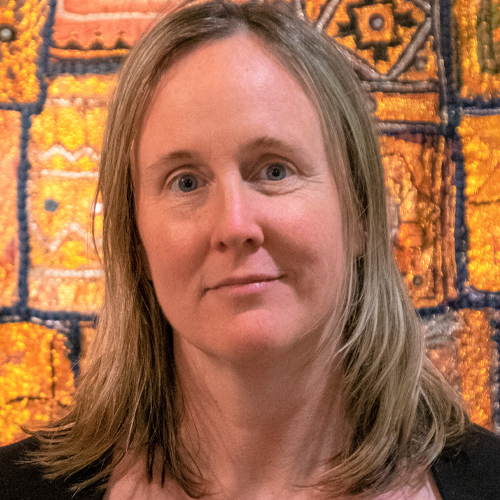
Now that the summer is wrapping up, many Canadian adults are in “back-to-school” mode regarding their children. But what about the parents themselves? Today’s economic and social reality means many of them would also benefit from increased learning opportunities, whether it’s how to negotiate a contract, improve their reading to help their children with homework, or upgrade their skills to get a better job.
In Canada, adult education provides life-changing opportunities for millions. Yet it remains a forgotten corner of education, lacking co-ordination and sharing of best practices; its learners and teachers often stigmatized; and its programs underfunded, and disconnected from social policy and education at large.
In a paper published by the Institute for Research on Public Policy on UNESCO’s International Literacy Day, I offer insights from Aotearoa New Zealand, a country that set up an overarching national educational strategy that helped move adult education from the margins to the mainstream. (Aotearoa, the Māori word for New Zealand, is increasingly used interchangeably there.) I also review lessons from Canada from the early 1970s to the mid-2000s, reflecting on how we might better support the learning of adults in our geographically vast, diverse and federated nation.
I identify five key areas for action across federal, provincial and territorial governments.
1. Make adult education mainstream
New Zealand’s most important step was to group everything involving the education of adults under one banner, from adult literacy to vocational training to higher education, and then to connect it to various ministries and agencies responsible for social and economic policies. Canada has had many champions, organizations and initiatives to be proud of, which helped place adult education on the radar of our governments and citizens over the 1970s, 80s and 90s. While many of these initiatives and institutions folded from 2000 to 2010, Canada can learn both from its past experience and from New Zealand to help bring adult education more into the mainstream, particularly at the provincial and territorial levels.
2. Beware of reliance on single measures of progress
While the proliferation of various literacy assessments, such as the OECD’s International Adult Literacy Survey, helped motivate investments in adult education, their findings should not be used too literally and in isolation. For example, making funding for adult education conditional on outcomes in Canada led to focusing on bringing learners with intermediate literacy skills (level 2) to a so-called “minimum job standard” (level 3), while overlooking individuals at rudimentary levels 0 or 1 in real need of improvement. Consideration should also be given to assessing “soft” outcomes such as changes in personal and social well-being and interest in further learning.
3. Professionalize and recognize adult educators
Increased pay, professional education and certification, and more public recognition of adult educators’ contribution to society were the main positive outcomes of New Zealand’s efforts to make adult education mainstream, which also provided greater legitimacy to the entire field. As one adult educator put it, “we’re no longer seen as grannies in cardies” referring to the reputation that adult education has had of being a non-serious, voluntary endeavour largely undertaken by retired women. There should always be a space for volunteers and for educators who do not necessarily possess the same credentials.
However, creating new avenues for teacher qualifications and ongoing professional development, as well as paying adult educators well, will help Canada become more of a place that values the education of people of all ages. Similarly, ensuring meaningful inclusion of experienced adult educators in the development of any evaluation tool, accountability requirements, or adult education policy development will also help make sure learners and educators get the support they need.
4. Empower Indigenous leadership in adult education
Aotearoa’s increasingly close work with the Māori over the past decades — including the development of a Māori qualifications framework and consideration of non-traditional outcomes, as well as required knowledge of aspects of Māori culture, history and language for teacher credentials — was an important step forward, and should be of particular interest in Canada at all levels of the government. Partnering with, providing increased financial support to, and empowering the leadership of First Nations, Métis and Inuit organizations will be crucial.
5. Build toward national co-ordination
Most likely, there will always be 13 separate education systems — for both adults and children — in Canada, so having better communication and co-ordination among them will greatly benefit both learners and teachers. There may be ways to make better use of existing organizations such as the Council of Ministers of Education, Canada that could facilitate the exchange of knowledge and practices across the country; help tackle interprovincial barriers to credential recognition; and generally contribute to streamlining the decentralized field of adult education in Canada. We should also consider reinvesting in pan-Canadian clearing houses to share best practices, along the lines of the former National Adult Literacy Database; supporting work that both captures and shares effective adult education; and exploring possibilities for new ways of supporting and sharing provincial research on Canadian adult learning. Any cross-country initiatives, however, must have provinces and territories as the key players that benefit from these initiatives rather than entities that merely report and contribute.
Canada now appears to be making a renewed effort to build a more robust adult education and skills system. Encouraging signs over the past few years include overall increased budgetary commitments, the Future Skills Centre and the recent establishment of the federal Office of Skills for Success. While these developments give cause for renewed optimism, the adult education field continues to lie outside the mainstream and little seems to have been done to challenge the long-standing association of adult education with basic learning for a small and marginalized subset of the population.
By drawing on lessons from our past and from other countries’ experiences, we can bring all government and non-government actors together to devise a nationally coherent system of adult education that will create a better future for us all.












